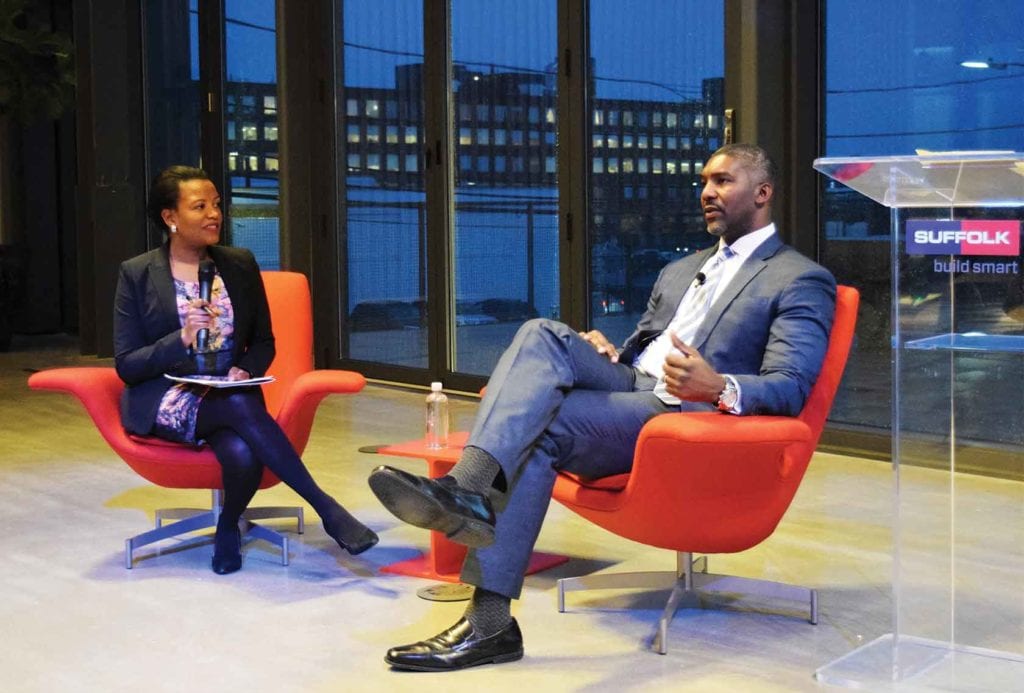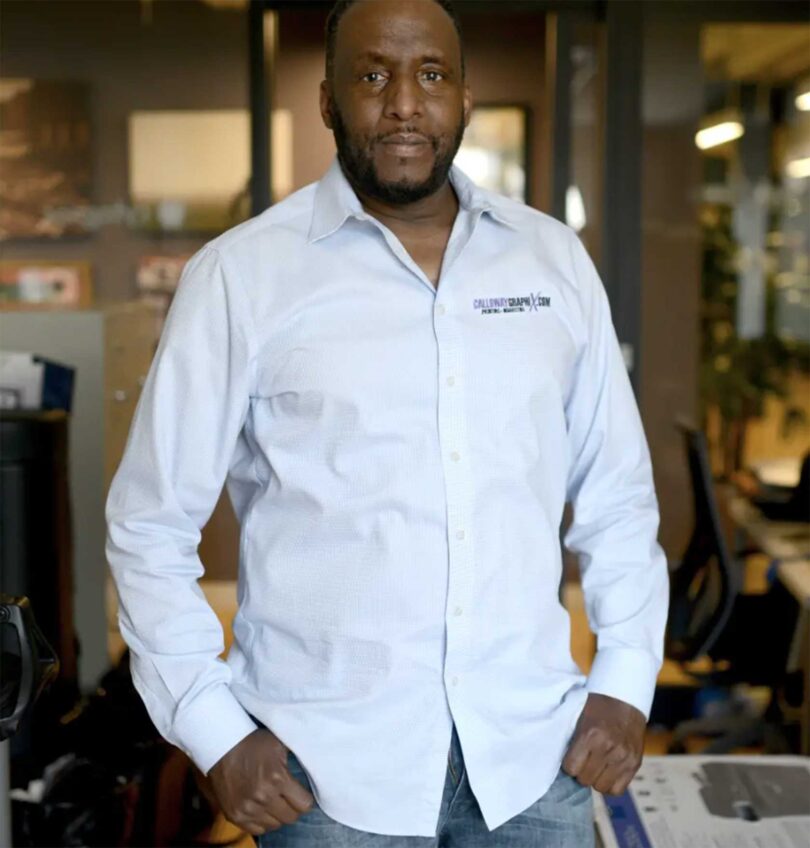Expanding opportunities
Local executives discuss strategies for diversifying firms

Ten months into her new role as vice president of diversity, inclusion and community at Suffolk construction company, former state Sen. Linda Dorcena Forry led a forum recently at the company’s Roxbury headquarters with Paul Francisco, chief diversity officer at State Street, on hiring practices, retaining diverse talent and fostering an inclusive workplace.
“One of our priorities at Suffolk is to transform the construction experience by building smart, but we know that it really begins with the people and the opportunities we want folks to know are here,” Dorcena Forry told the Banner.
Dorcena Forry is also co-chair of Suffolk’s Diversity and Inclusion Council, formed on Aug. 1, according to her. Aldo Guerrero, risk manager at Liberty Construction Services, a subsidiary of Suffolk, said the new council is tasked with “building a diverse and inclusive workforce where all are supported, respected, connected and valued.”
“When the council began its work, it became clear we needed to understand and more broadly discuss what diversity and inclusion means in our workplace. This is why we’re here today,” said Guerrero before inviting Francisco to speak in front of a crowd of company employees and partners.
Francisco, who has been at his role at State Street for two years, and once played football for the NFL, shared how he immigrated to the United States at age 17 and started his human resources career when he observed how homogenous corporate America was.
“I get to my first corporate gig and I don’t see anyone who looks like me,” said Francisco. “And when I do, they are not in the same type of roles I’m in.”
Eager to get to the bottom of it and unsatisfied with his boss’s response that “We’re having a hard time finding people like you,” Francisco started volunteering at his company’s HR department, analyzing their hiring practices and where they recruited talent from — usually elite college campuses.
“I asked, ‘How come we don’t go to an HBCU — an historical black university?’” Francisco said. “They said, ‘Well, how good are those schools?’ You start to unpack unconscious biases around education and what talent looks like.”
When it comes to creating the best team for a company, Francisco said, “If you want to be the most innovative and competitive, you have to have people who can approach problem-solving differently, and think differently.”
Francisco said that he pushes the executive team at State Street to ask, “How smart are we building our teams, how smart are we engaging with the people outside of the organization? Are we moving people equally throughout the organization? Are we judging people in the same way? Do we have systems in place to flush out biases?”
Surrounding oneself with people who are different is not a natural tendency, Francisco mused. “All of us have biases and tend to gravitate towards people who are like us, make us feel safe and reflect who are.”
He added, “There’s nothing wrong with that. But I would challenge you to be able to work with people who don’t think like you, to collaborate with people who have different opinions … to analyze your network and how comfortable you are dealing with people who aren’t like you.”
Francisco concluded his talk by naming leadership qualities he believes help companies succeed and build strong and diverse teams: intellectual curiosity, flexibility and humility.
Follow-up questions
Dorcena Forry continued the discussion by asking follow-up questions, many of which were submitted by Suffolk employees.
In response to Dorcena Forry’s question, “What was the most impactful diversity and inclusion vision you’ve implemented?” Francisco said, “If we don’t treat this work in the same way we approach business, then it’s not going to succeed. We need to measure it.”
According to State Street’s 2017 Corporate Responsibility Report, diversity goals were set across eight different categories to increase representation of women globally and employees of color in the U.S.
Should company leaders have to address employees within the status quo feeling “threatened” by staff changes and an increased emphasis on diversity, Francisco said, “You can’t forget about the people already there. You need to tackle how managers who have been there 10, 15 years are looking at it.”
He continued, “They might be thinking, ‘What does this mean for me if I’m a white male? Am I still valuable to the organization?’ You have to do a lot of work internally, with everybody, so they understand what it means and the opportunities it creates for everybody.”
Dorcena Forry and Francisco discussed how to normalize diversity and inclusion within the company culture. “It shouldn’t be a completely separate issue from the rest of the work that happens at the company,” said Francisco. “The best way to start to have a conversation is in a way that’s intertwined with how you talk about work, and then it becomes second nature for people to be like, ‘Yeah, why wouldn’t we want to do that?’”
Suffolk CEO John Fish has made new key hires in the last month, including appointing Lea Stendahl from E-Trade as chief marketing officer and Puneet Mahajan from General Electric as chief financial officer.
“There are different lenses happening here,” said Dorcena Forry when asked about the Diversity and Inclusion Council’s priorities. “We’re starting to track data to measure our diversity — we’re looking at talent, internal mentorship, and how we’re communicating.”
On the web
Suffolk Construction: www.suffolk.com
State Street: www.statestreet.com






